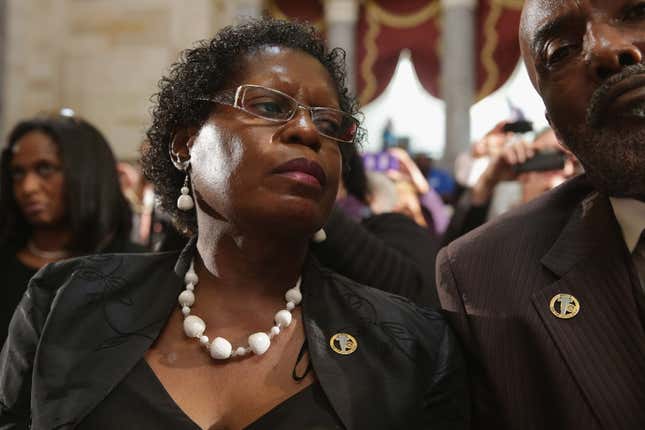
One of the most tragic moments in Black American history happened in 1963 when a group of cowardly Ku Klux Klan members bombed the 16th Street Baptist Church in Birmingham, Ala., killing four Black girls who were no older than 14. It was also one of the most galvanizing moments of the civil rights movement. The deaths of Addie Mae Collins (14), Denise McNair (11), Carole Robertson (14), and Cynthia Wesley (14) are forever remembered in the Black community and across the nation. What some forget or never knew is that there was a fifth Black girl who survived the bombing. On Tuesday, that woman requested a public apology and compensation from the state of Alabama.
69-year-old Sarah Collins Rudolph—the younger sister of Addie Mae—was 12 the morning of Sept. 15, 1963, when the explosion that stunned the nation would also change the trajectory of her life.
“Ms. Collins Rudolph simply wanted to do what so many other little girls across Alabama were doing—attend a church service,” a letter sent from Rudolph’s attorneys to Alabama Gov. Kay Ivey reads, the Washington Post reports. “But instead of gaining the solace and celebration of prayer, the church was bombed by those affiliated with the Ku Klux Klan and our client lost her sister, her right eye, her childhood, and in ways she could never know then as a 12-year old girl, a lifetime’s worth of opportunities and dreams.”
“While the State of Alabama did not place the bomb next to the church, its Governor and other leaders at the time played an undisputed role in encouraging its citizens to engage in racial violence,” the letter continues.
Rudolph—who was permanently blinded in one eye by shards of glass from the dynamite blast—has endured a lifetime of trauma while the white supremacists emboldened by a racist nation who were responsible for the bombing remained free for years and even decades before finally being brought to account for their horrendous crimes.
From the Post:
Her grades plummeted, and she eventually gave up her dream of becoming a practical nurse. She spent her life working in Birmingham’s factories grinding skillets and drilling aluminum. In an interview with The Washington Post in February, Rudolph said she became too fearful to continue worshiping at the 16th Street Baptist Church and lived in a kind of emotional paralysis until a spiritual experience with a Pentecostal pastor released her.
It took 39 years to bring three of the murderers to justice. Bobby Frank Cherry was convicted in the girls’ murders in 2002. Robert Chambliss, convicted in 1977, died in prison in 1985, as Cherry would in 2004. Thomas Blanton Jr. was convicted in 2001 and died in June while serving his life sentence. A fourth suspect, Herman Cash, died in 1994 without being charged.
Rudolph married her husband, George, a former city parks worker and Vietnam veteran, at the age of 50, and he encouraged her to seek an apology and restitution. This is her first formal request.
Ishan Bhabha, a partner at Jenner & Block, the law firm working on Rudolph’s case pro bono, told the Post what we’re likely all thinking: There’s nothing to debate here. Give that woman her money and anything else she’s requesting.
“Given what Sarah has suffered—losing an eye and, more broadly, the fundamentally different path that this horrendous act put her life on, how do you compensate for that?” Bhabha asked. “What is a lifetime of missed opportunities worth?”
“It’s not the kind of thing that should engender disagreement or debate,” he continued. “Sarah is an extremely worthy person who has suffered something extraordinary and horrendous and she has been courageous throughout her life.”
According to the Post, Bhabha said his firm is optimistic that the state will approve Rudolph’s requests.
Ivey‘s press secretary, Gina Maiola, told the Post via email Wednesday that Ivey received the letter and the governor’s office is reviewing it.
Hopefully, the state of Alabama does the right thing. It’s long overdue.

